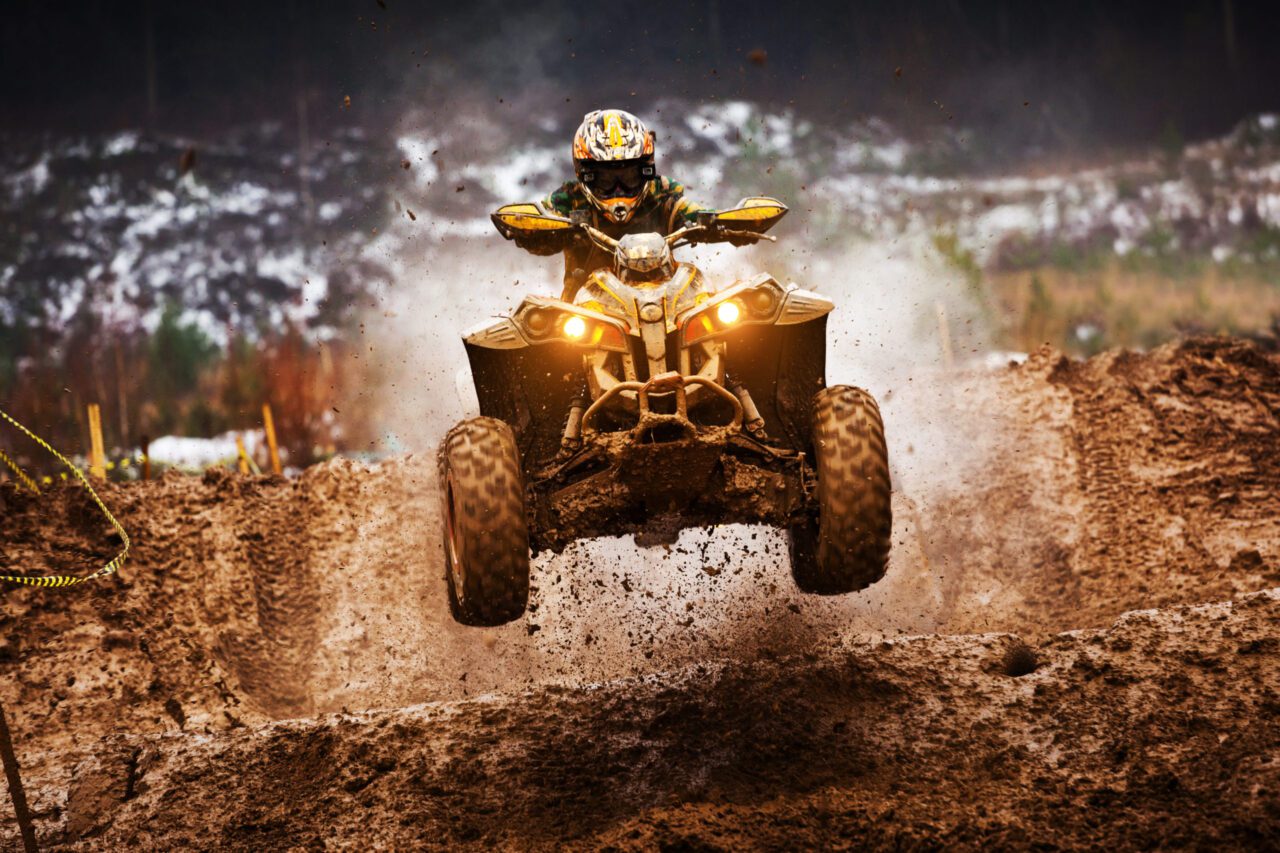Am I covered if I don’t wear a helmet on my OHV?

Despite how fun riding an off-highway vehicle (OHV) can be, it can also be very dangerous. An average of 19 Albertans die while riding an OHV each year with another 6000 requiring medical attention. In Alberta, all riders of OHVs are required by law to wear a helmet while on public lands. Regardless of the rules, it’s always a good idea to wear a helmet while riding for your own safety. In this article, we’ll discuss the impact on your insurance if you’re not wearing a helmet if an accident happens.
Riding an OHV on Public Lands in Alberta
As with other motor vehicles, each province is responsible for setting out its own safety guidelines for OHVs. As of May 2017, Alberta has required all riders of OHVs to wear a helmet while on public lands. This includes public roadways, highway rights-of-way, crown land and any area designated for public OHV use. This law was implemented due to the significant number of head injuries associated with OHVs over the years.
Fines for not wearing a helmet are $155 (or $93 for not wearing a CSA-compliant helmet).
If you’re riding an OHV without a helmet on public land and something happens, your insurance will most likely not cover you. This also applies to any passengers. This is because not wearing a helmet while riding an OHV on public land is breaking the law – and illegal or criminal acts are often excluded by insurance policies.
Riding an OHV on Private Lands in Alberta
Helmets are not required by law on private property, which means you may have coverage if you’re hurt in an accident while riding without a helmet. However, some insurance companies will not cover injuries sustained while not wearing a helmet. It’s important to check your policy documents or speak to your broker.
Does Wearing a Helmet Make a Difference?
It is always a good idea to wear a helmet when operating an OHV. A properly fitting helmet can be the difference between life and death in the event of a crash. In Alberta, eighty percent of fatalities occur when the operator wasn’t wearing a helmet.
OHV helmets must comply with the same safety standards as motorcycle helmets. It’s important that the helmet fits properly. Full-face helmets are the safest option. Read more about choosing a helmet here.
Always replace your helmet if you’ve been involved in a fall or accident.
OHV Insurance Coverage
If you ride your OHV on public lands, you’re also required to have insurance. Here are some different coverages available:
Third-Party Liability – If someone else is hurt or has their property damaged by your OHV, this coverage helps cover the costs and any legal expenses if you’re sued.
Accident Benefits – Helps cover the medical costs if you’re injured while riding your OHV.
Comprehensive or All-Perils – Covers repair or replacement of your OHV if it’s damaged by a non-collision insured peril like fire.
Collision – Helps repair or replace your OHV if it’s damaged in a collision.
Most policies restrict coverage if the OHV is operated by a minor or the operator is under influence of alcohol or drugs. If you use your OHV for extreme activities, carry more than three passengers or if you use it for purposes it wasn’t intended for, you may not have coverage if something happens.
Give one of our brokers a call to ensure you’ve got the right coverage for your needs. Enjoy your time spent off-roading – safely!







